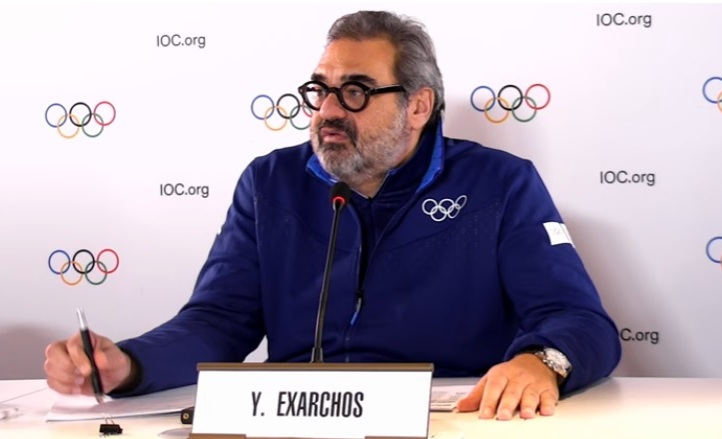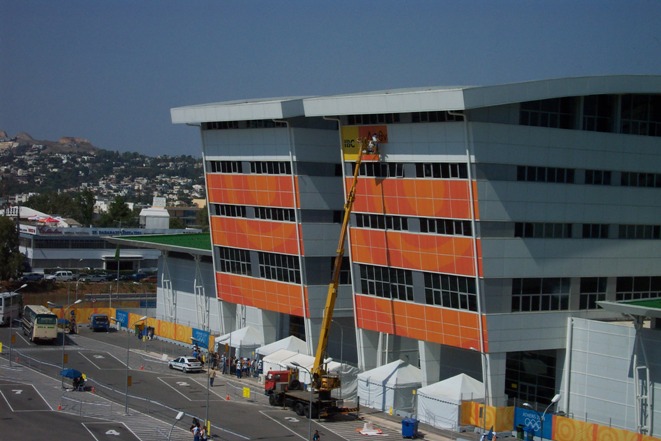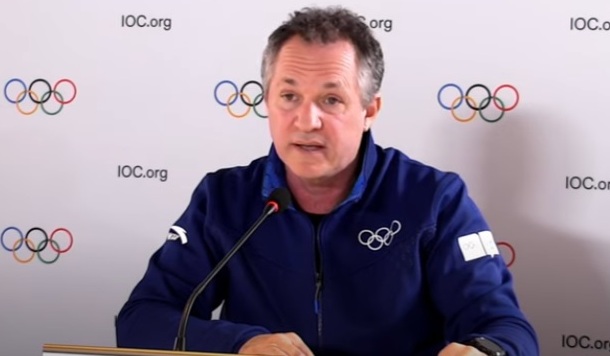AI, Digital Revolution Propels Olympic Storytelling
Artificial Intelligence and digital technology are reshaping the experience of watching the Olympic Games for spectators around the globe. The democratization of Olympic storytelling will be the result says the head of the IOC’s broadcasting arm. The proving ground for this technological shift: the 2024 Winter Youth Olympic Games in Gangwon Province of South Korea, now in its final days.
Olympic Broadcast Services CEO Yiannis Exarchos calls the winter YOG “an incubator for innovation” for OBS. The Madrid-based company owned by the IOC is responsible for producing the video and audio signals used by broadcasters and online content producers covering the Games.

“It’s very difficult to be testing many things during the Games, he said during a media briefing this week from the Winter YOG. He says it’s much better to try out new technologies during a lower key event like the YOG instead of debuting at the Summer Olympics, which are five times the size of the winter or summer YOG. “You have to go with very mature technologies. So for us these [Winter YOG] are very special. You’ll see things already being implemented in only a few months for the Games in Paris,” said the OBS chief.
One of these new technologies is a virtual broadcast van. Instead of a truck packed with servers and other equipment, the virtual van provides all that via software and Cloud-based connections. IOC sponsors Intel and Alibaba are closely involved. The result, Exarchos says, is a smaller footprint, more cost-effective production and greater flexibility. Fewer staff will be needed as well.
First used in 2022 during the Winter Games in Beijing, the virtual van was trialed for the curling competition. In Gangwon it’s being used for ice hockey as well. In Paris the virtual van will help produce the coverage of judo, wrestling, tennis and shooting.
Exarchos said the digital revolution has meant lower costs of production well beyond the virtual van. Production of nearly half of the OBS Games coverage is handled at OBS headquarters in Madrid. That means fewer staff at the Games, whether the YOG or full-scale Olympics with 10,500 athletes. A smaller International Broadcast Center is also a cost-saving benefit of digital production. Once a mammoth venue, the IBC shrank by 23% from Rio 2016 to Tokyo 2020. In Paris, the IBC will be 13% smaller than in Tokyo. The IBC in Paris is also expected to reduce its power needs by nearly three-quarters from the Rio venue.

Artificial intelligence will also play a role in efficient and sustainable Games, Exarchos said. Ice hockey in Gangwon is providing a test of this technology. He says AI isn’t ready for Paris. But he sees a day when AI driven cameras are used to cover early rounds of competition and sports that may be not as popular as athletics, swimming or gymnastics.
Exarchos notes that AI is already helping to generate highlights and summaries from the Olympic competition. With OBS providing coverage of 33 sports in Paris in nine languages, he says the need is great for AI to help deliver speedy results across the various digital platforms of the IOC. Speaking alongside Exarchos, IOC director of digital media and marketing Leandro Larrosa says that quick delivery is needed for an online audience that he expects instant results.
Asked about the dark side of AI which produces fakes, misinformation and other falsehoods for mass consumption, Exarchos says the IOC “will always err on protection and caution”. He says AI needs a structure of regulation in place that sets standards and boundaries for the use of this technology. The deliberations about these questions may be “the most important public conversation in the next years around the world”.

Larrosa says the uptake online so far for these Winter YOG is strong. Traffic for these games is up over 1.6 percent from Lausanne 2020, the preceding Winter YOG. He says that number is significant as these Games are taking place in a time zone far removed from the large audiences for winter sports.
“It is truly remarkable that our content is drawing more users than Lausanne,” he said at the media briefing.
Overall Larrosa calls the IOC’s digital presence one of the strongest among sports worldwide. He says there were 115 million users of the IOC digital platforms in 2023, some 28% higher than 2022. Notable is the fact that 2022 was an Olympic year, surpassed in numbers for 2023, without the boost of the Olympics.
In the wake of the digital revolution and adoption of AI, Exarchos says he would be “one of the richest man on Earth” if he could successfully predict the next technology breakthrough adopted for Olympic broadcasting. Right now he says the mission is to harness the new technologies to drive powerful story telling.
“Deep down, for us at OBS, the single most important thing in relationship to technology is again, storytelling, because this is a very unique human characteristic. I think we perceive reality and we imagine the future though listening to stories. This is also something we constantly try to do in the Olympic Games.
“The reason why the Olympic Games are so attractive and remain so attractive I think for large audiences, actually in Paris, half of the world’s population will engage with the Games, is people still get inspired by the stories of these incredible people who are the athletes of the world.
“For me the key point is to allow technology to help us to tell human stories in a more compelling, in a more authoritative, more inspirational way. What I feel is that there may be a shift in the future and we all should be welcoming that. That would be in finding ways people out there have the capacity to actually influence and become part of this storytelling. So to really use the capacity of digital technology. We have the capacity to collect individual reactions.
“For me this opportunity is fascinating because it can lead to a gradual complete democratization of storytelling, the participation of every single person in this human commonality that is the Olympic Games”.

